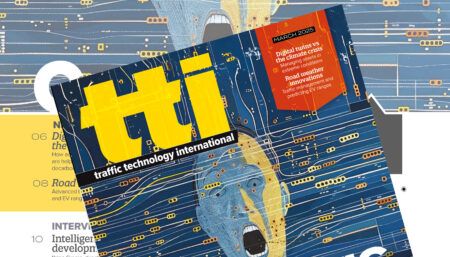A new partnership of mobility providers, municipal governments and transportation stakeholders has been formed to educate and promote smarter transportation policies at the federal, state and local level across the USA.
In addition to advocating for smarter transportation policies, the new Coalition for Smarter Transportation (CoaST), aims to provide technical assistance, develop materials, and take other steps to help decision makers enact and implement policies that will improve the USA’s transportation system.
As part of its formation process, CoaST has released six guiding policy principles on what smarter transportation means:
• Better performance – Public investment should be focused on desired outcomes. Planning and funding decisions should be based around identifying and executing projects that will provide desired outcomes. Our surface transportation systems need a lot of help. Our major highways should be focused on performance gains of passenger and freight throughput, rather than a continued push for vehicle throughput with one passenger per vehicle. We must also look at how we fund mobility options and ensure that investment decisions are made with a desired outcome in mind and reassess if such decisions are providing the desired outcomes;
• Better planning and procurement – More investment needs to be made in the processes and bodies that plan our transportation system. We need to expect more from our transportation agencies, but we need to ensure that they have the necessary resources. Policy at all levels should encourage planning that focuses on outcomes and the most effective way to achieve those outcomes. In that same context, there is a smarter way to procure innovative services to address problems and partner with those entities that can provide outcomes that are desired;
• Focusing on moving people and freight rather than vehicles – Cars are never late for a meeting or to pick up their kids. Trucks don’t lose out on business because products aren’t on the shelf in time, so why do we have transportation policies that focus on moving cars? Our policies should focus on moving people and goods in the most efficient way possible;
• Investment in policies that drive behavioral change – Investing in projects and programs that incentivize a change in how people travel complements our investments in infrastructure and increases the value of such investment. These critical projects are low-cost ways to maximize our capital investment and should be a part of every transportation investment;
• Increased investment in innovation – Technology is improving the way we do almost everything, yet in many ways, transportation agencies are yet to fully embrace innovation. Innovative technology and business practices need to be tested and deployed. A smarter transportation system includes focused investment and policies that encourage innovative solutions and business practices;
• Increasing investment in research for tomorrow’s technology – We must never stop innovating. Investment should be made so that the technology of tomorrow begins in the universities, labs and garages of today.
“Technology is changing transportation in so many ways. Data and technology are powerful tools that can provide individuals with options on when and how to travel,” commented Ryan Croft, co-founder and COO at TransitScreen and CoaST member.
“We look forward to working with the coalition to help policy leaders integrate smarter transportation into their decision making.”




